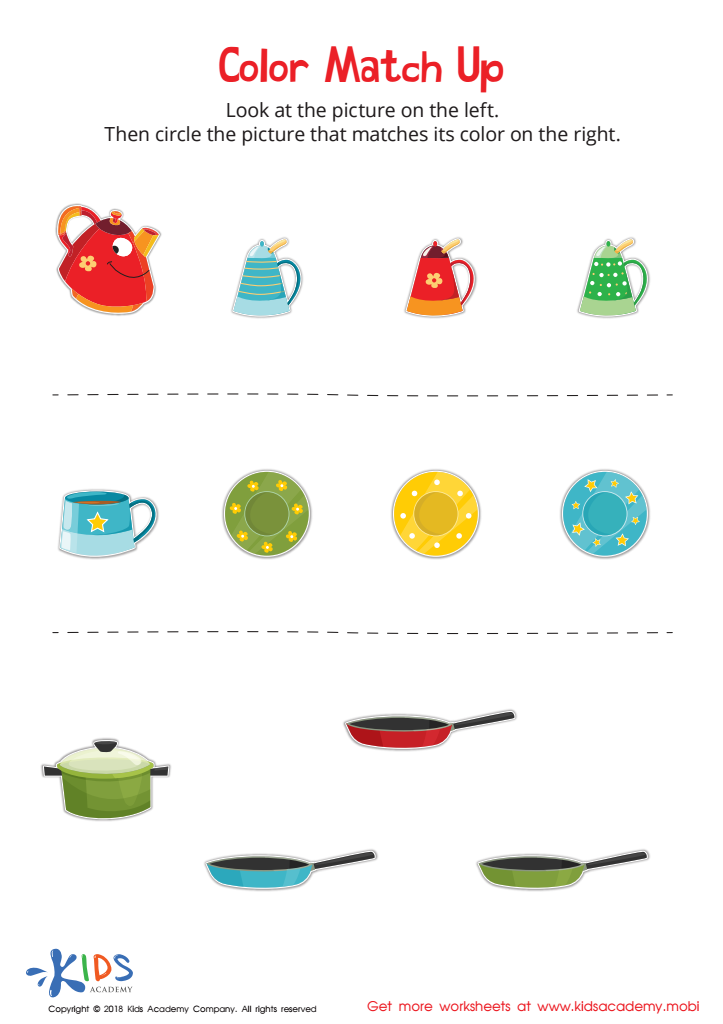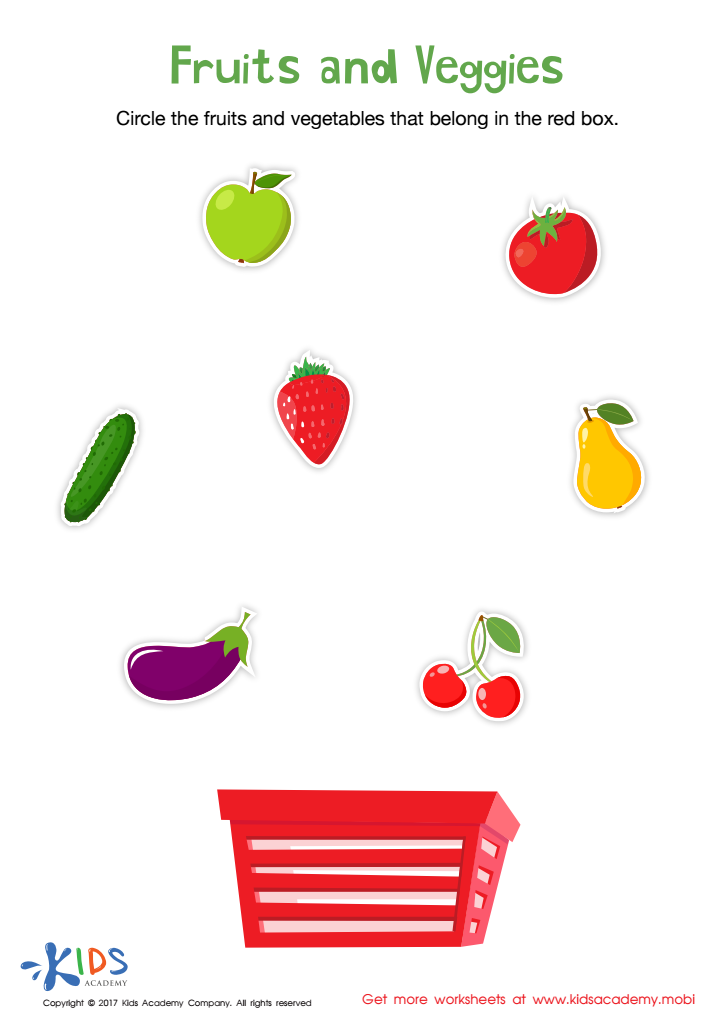Normal Matching Worksheets Activities With Answers for Ages 3-8
42 filtered results
-
From - To
Unlock the joy of learning with our Normal Matching Worksheets for ages 3-8! Designed to enhance logical thinking and cognitive skills, these fun activities feature engaging themes that capture young minds. Each worksheet encourages children to match pictures, words, or symbols, promoting recognition and memory retention. With a variety of colorful and stimulating options, our resources cater to different learning styles, making it easy and enjoyable for little learners. Plus, an answer key is included for effortless assessment. Perfect for classroom settings or at-home practice, these matching activities pave the way for educational growth and confidence in young children. Explore the fun today!
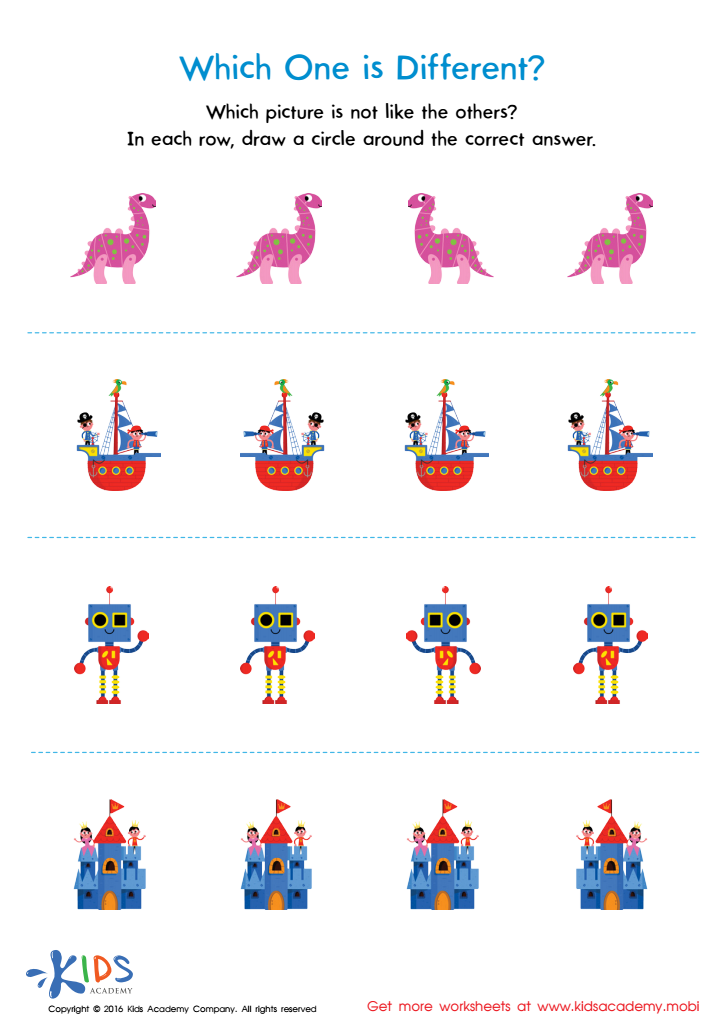

Which One Is Different Worksheet
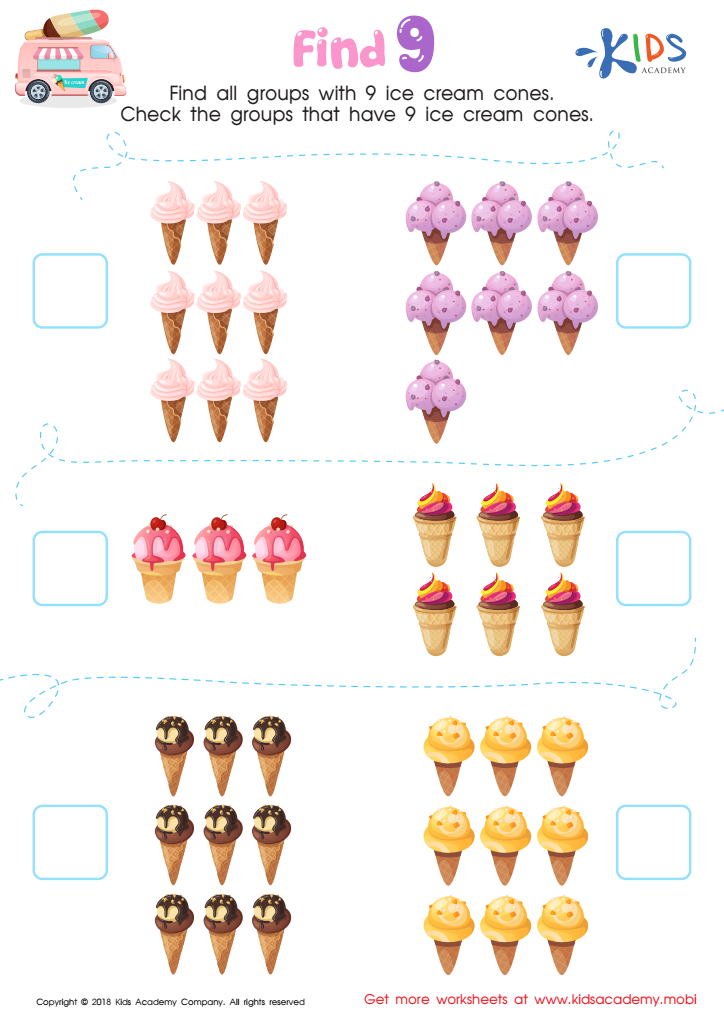

Find 9 Worksheet
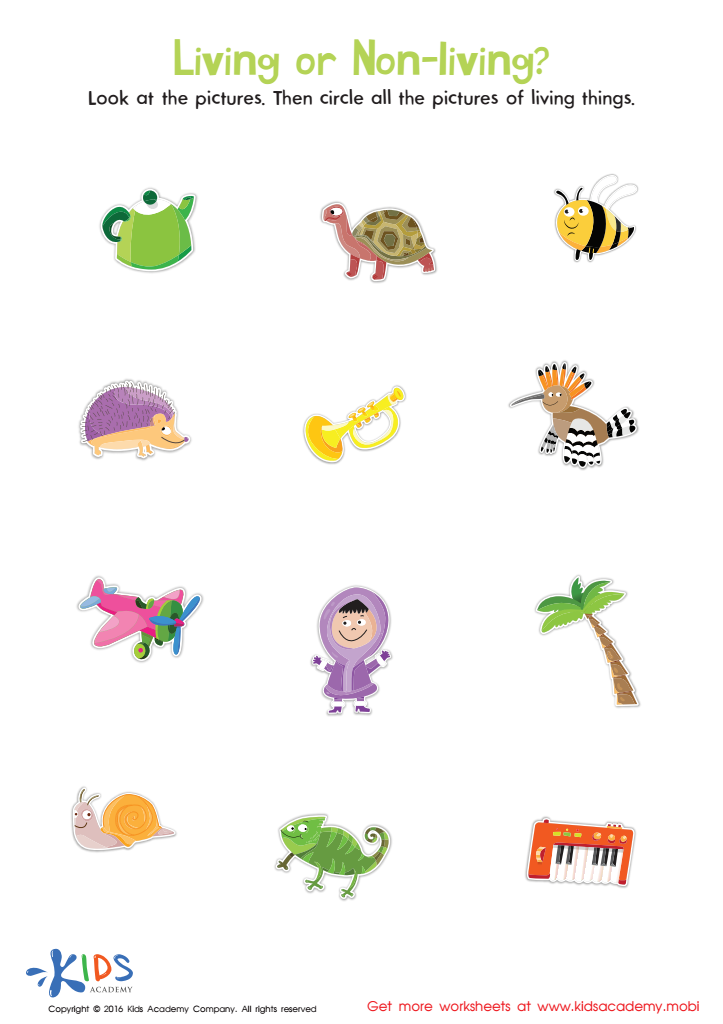

Identifying Living and Non–living Things Sorting Worksheet
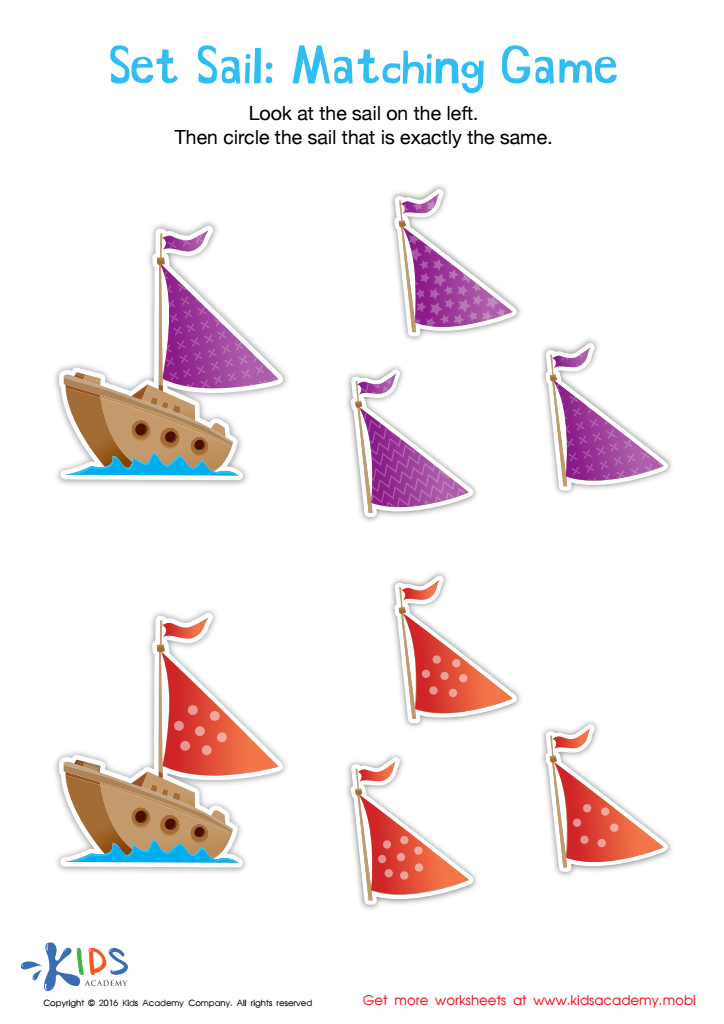

Set Sail Worksheet
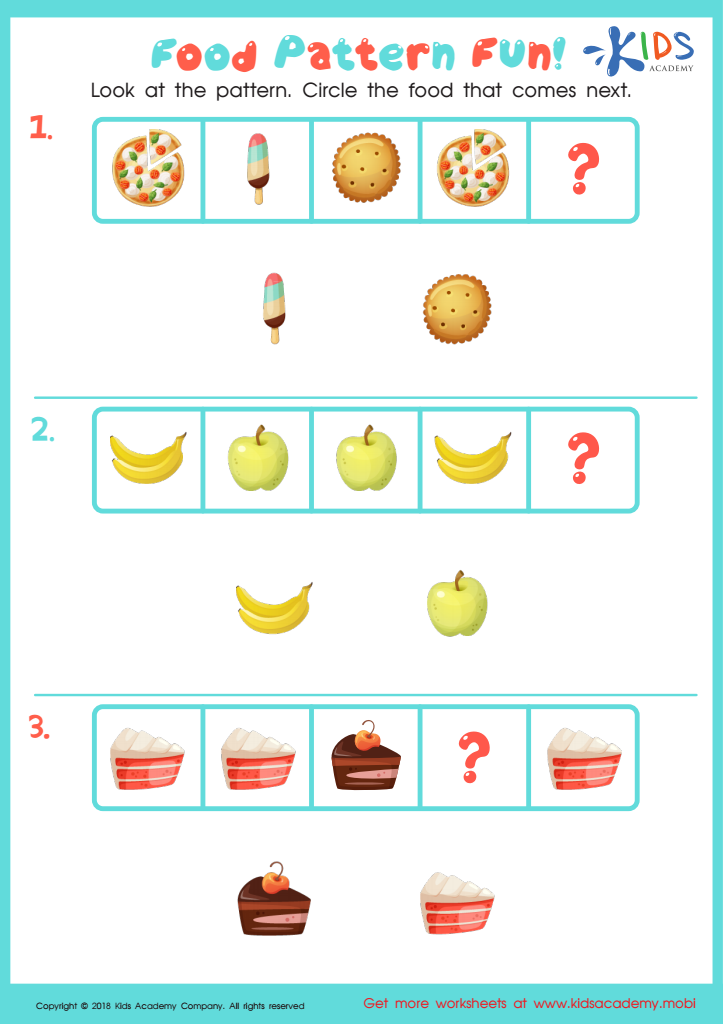

Food Pattern Fun Worksheet
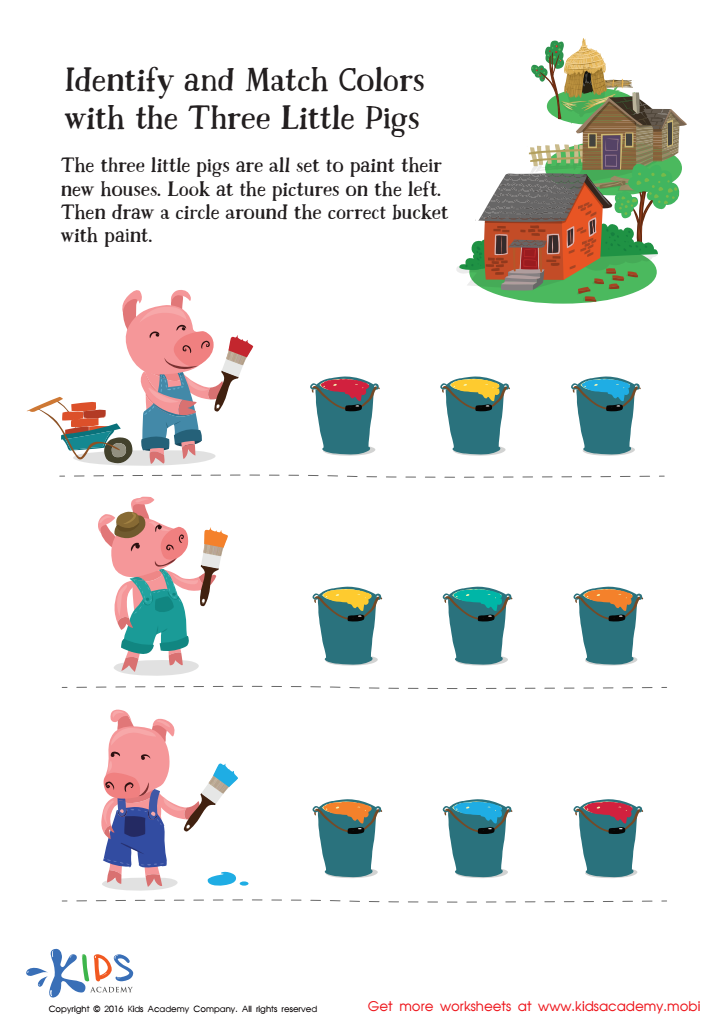

Fairy Tale Worksheet: Identify and Match Colors with Three Little Pigs
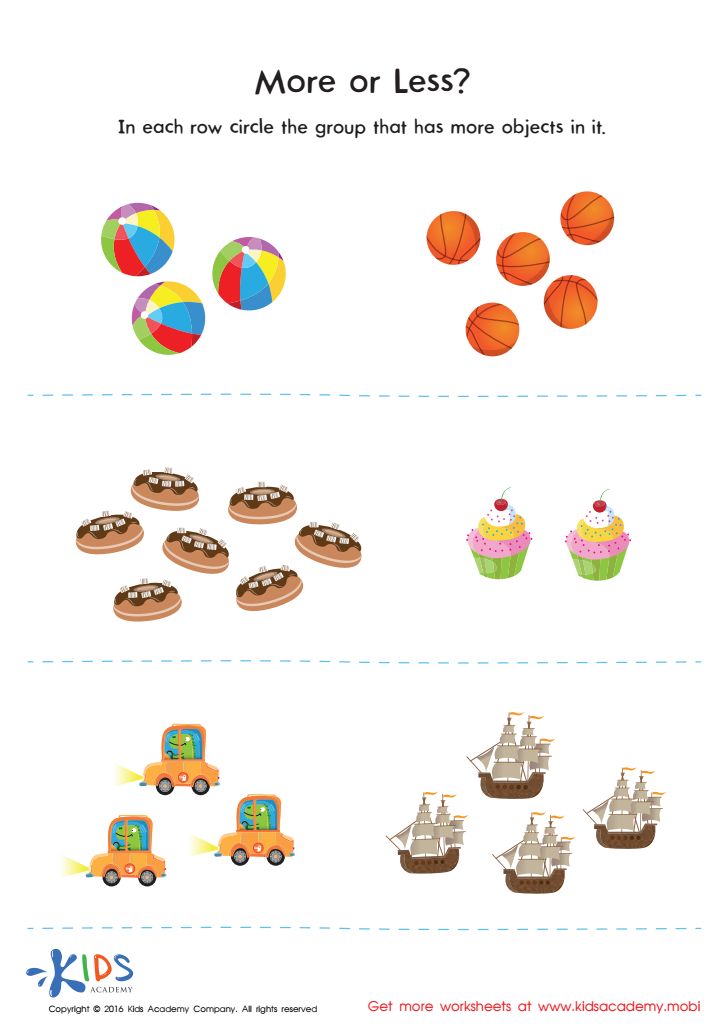

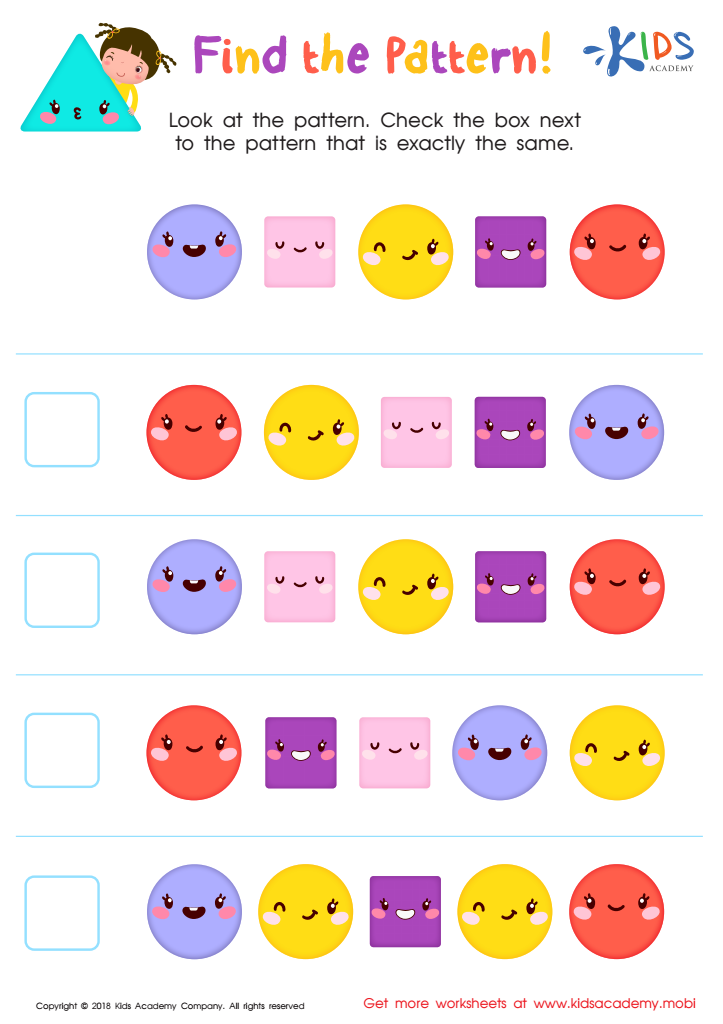

Find the Pattern Worksheet


The 5 Sense Scientist Worksheet
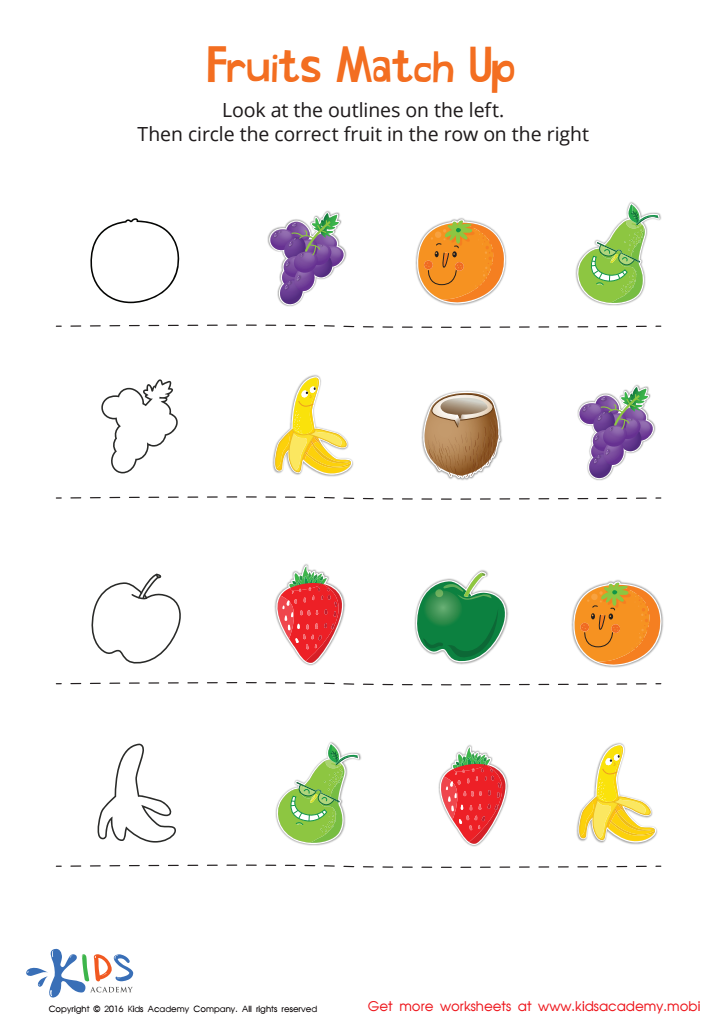

Fruits Match Up Worksheet
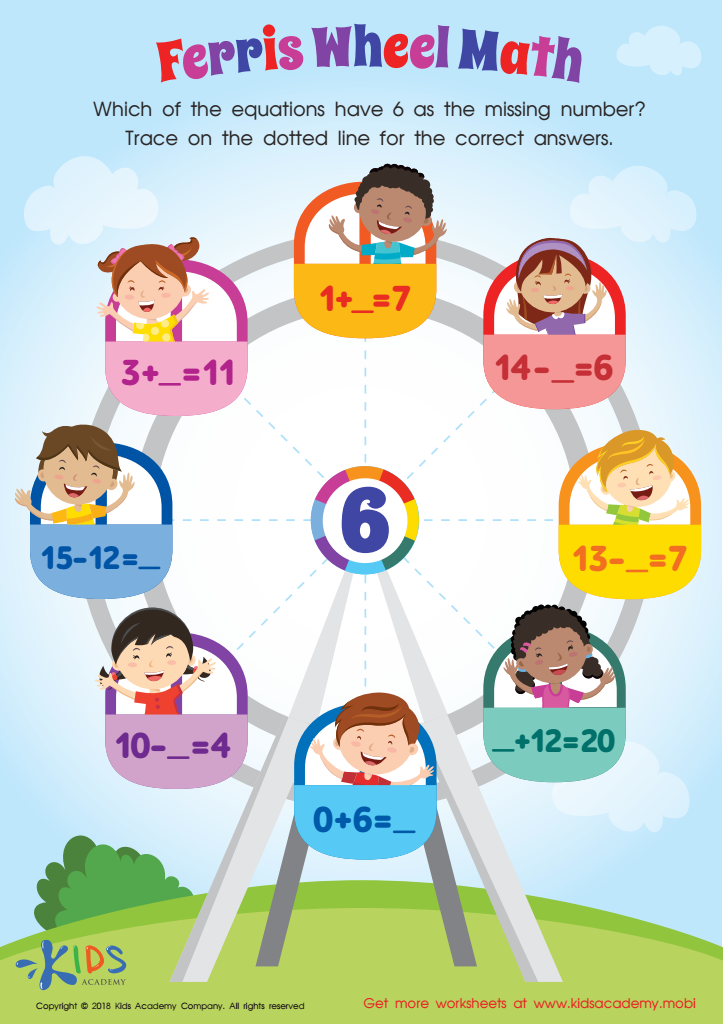

Missing Number: Ferris Wheel Math Worksheet


Matching: Classifying Toys by Size Worksheet
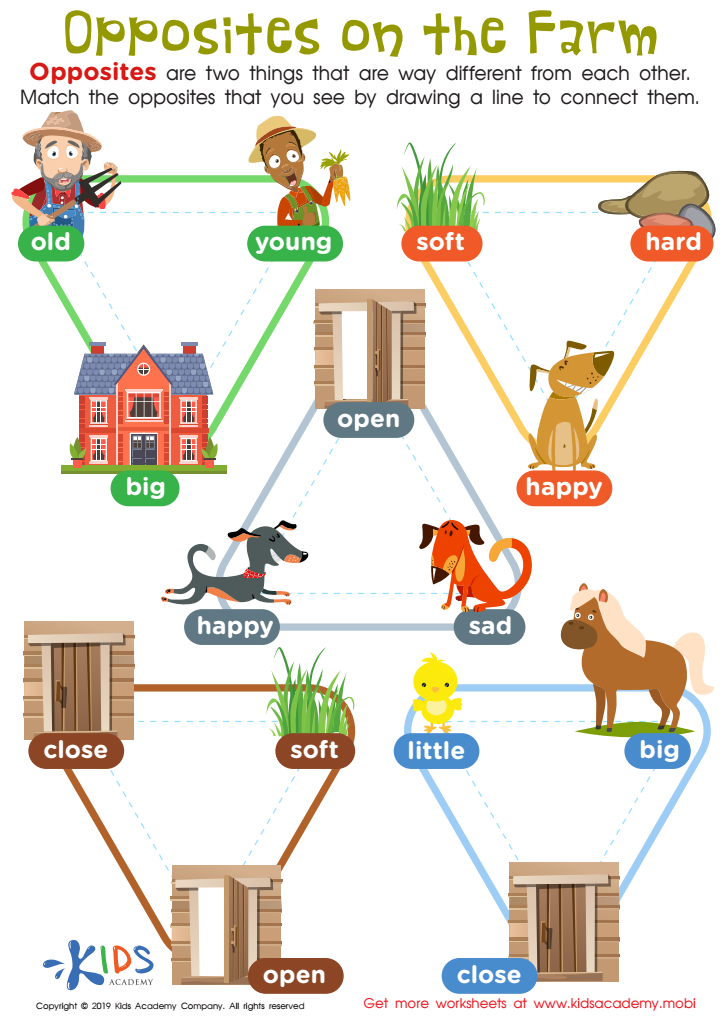

Opposites on the Farm Worksheet


Make the Same Pattern Worksheet
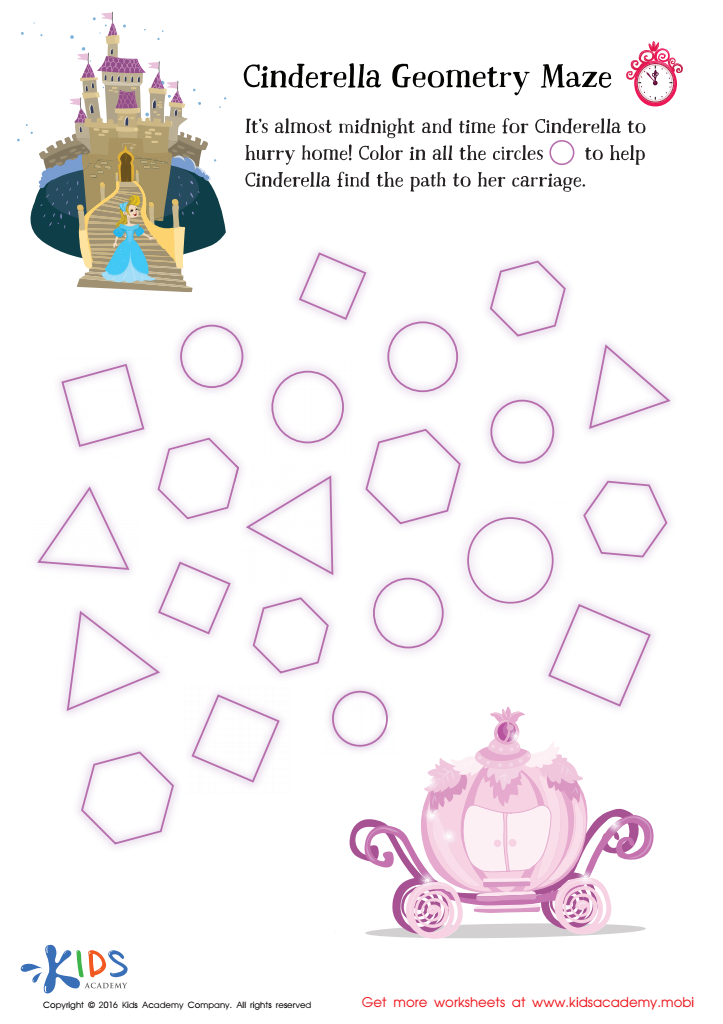

Cinderella Geometry Maze Worksheet
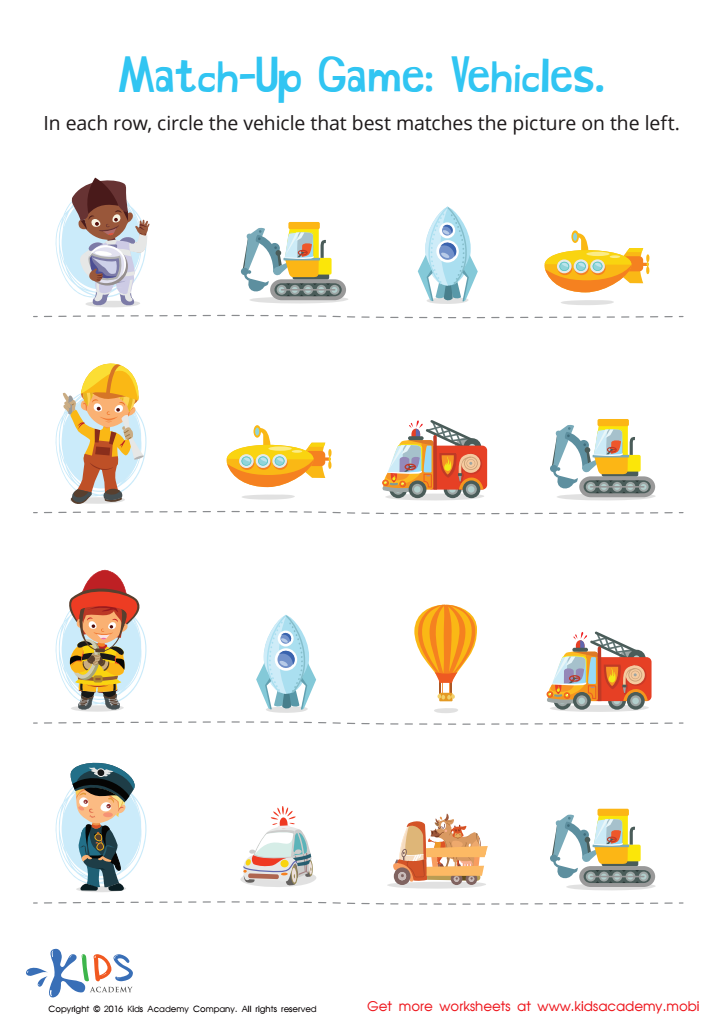

Vehicles Worksheet
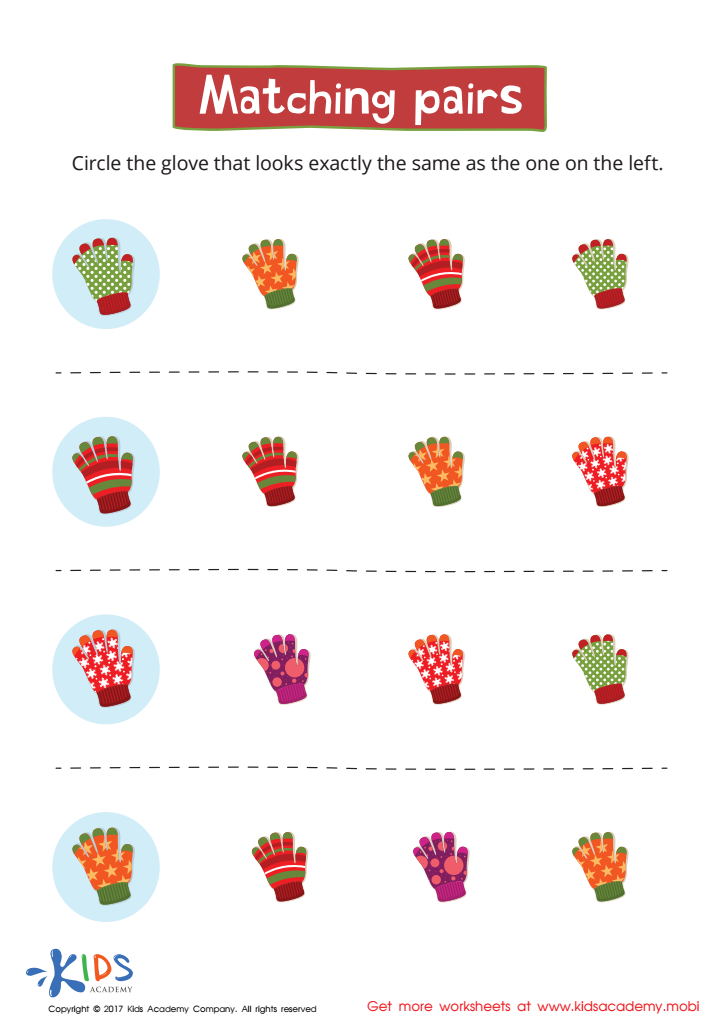

Matching: Matching Pairs Worksheet
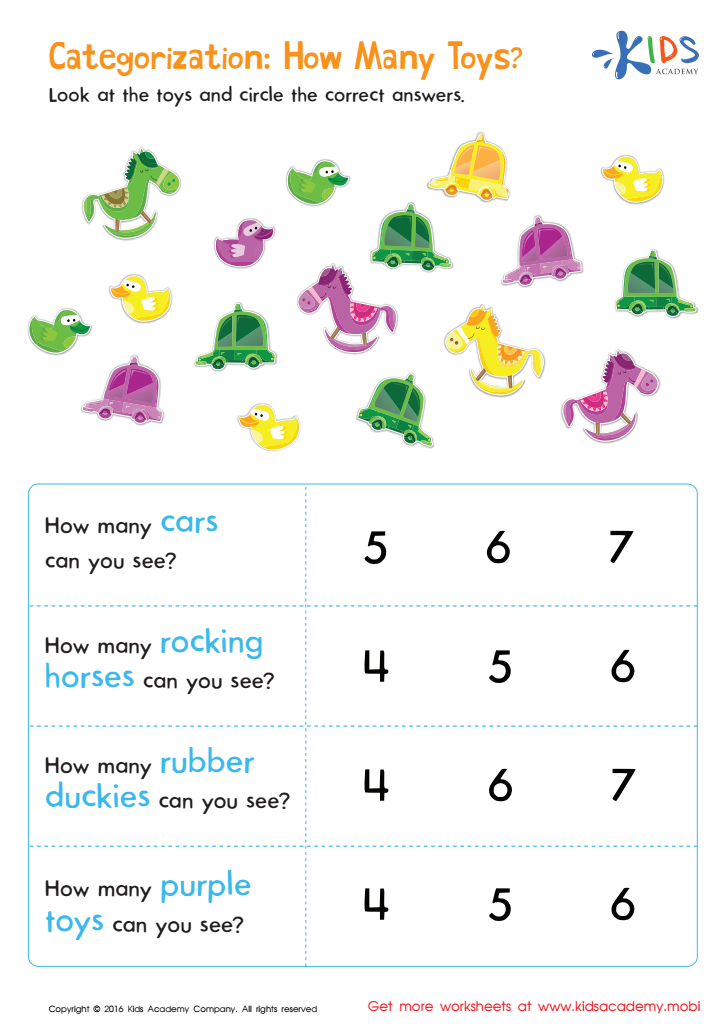

Classifying Toys by Type and Color Sorting Worksheet
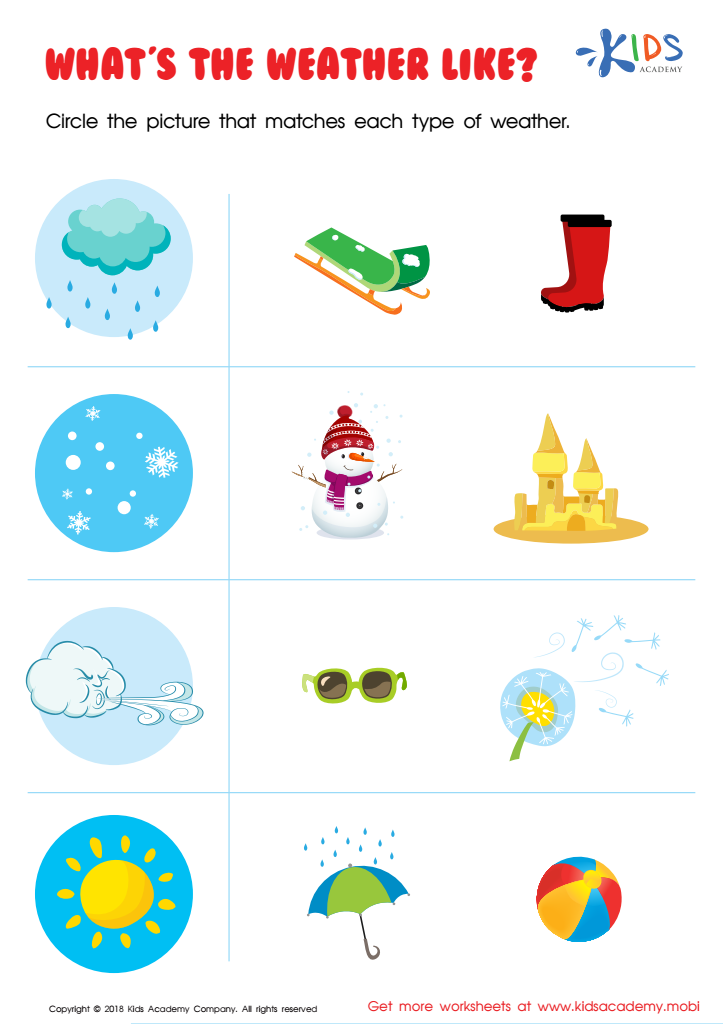

What's the Weather Like? Worksheet
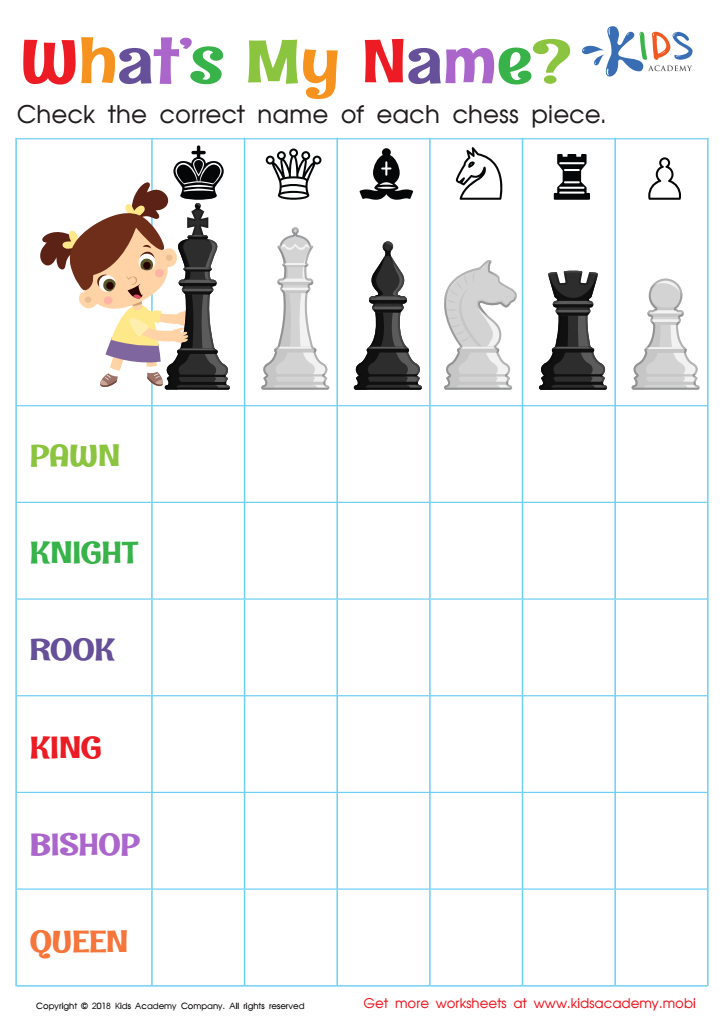

What's My Name? Worksheet


Logic Game Sorting Worksheet
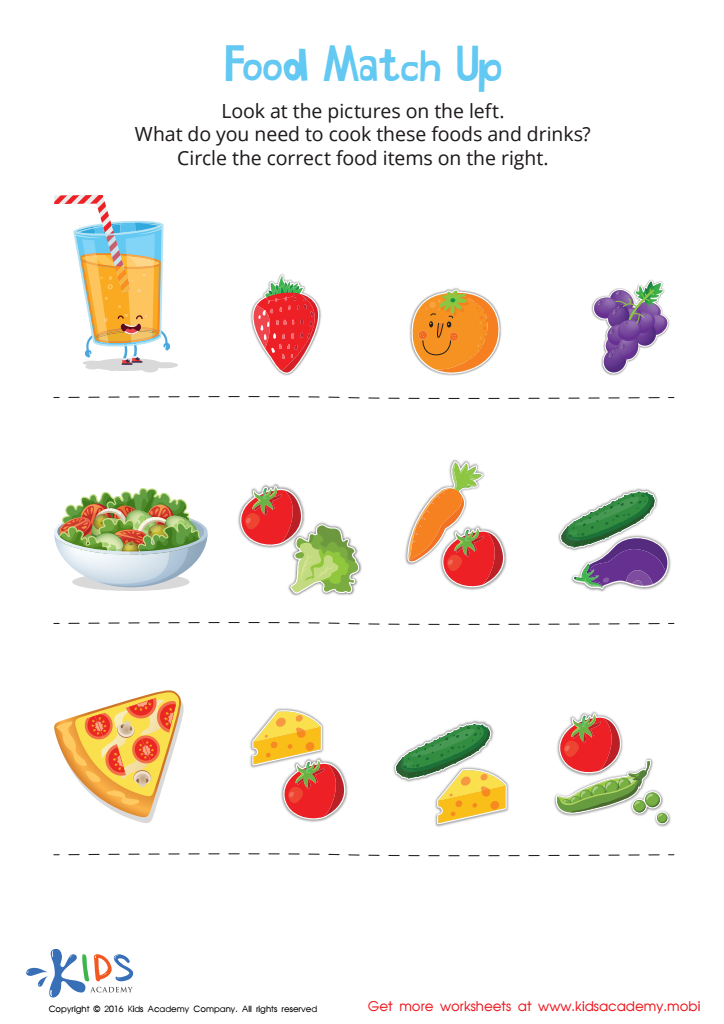

Food Match Up Worksheet
Normal Matching Activities are essential tools for parents and teachers, particularly for children aged 3-8, as they support critical cognitive and social development during these formative years. These activities enhance children's memory, concentration, and critical thinking skills, laying the groundwork for future academic success. By engaging with matching games, children learn to recognize patterns, categorize objects, and develop fine motor skills as they handle physical or digital cards.
Additionally, normal matching activities can be tailored to fit various educational themes, making them versatile. They can introduce vocabulary, numbers, symbols, and even social skills, such as taking turns, sharing, and following instructions, thus promoting holistic development. For children who struggle with focus or organization, these activities provide structured yet enjoyable learning experiences that encourage persistence and resilience.
Furthermore, teachers and parents can easily adapt these activities to accommodate diverse learning styles and abilities, ensuring that every child is engaged and included. Ultimately, normal matching activities not only make learning fun but also foster meaningful parent-child or teacher-student interactions, creating a supportive environment that nurtures curiosity and a love for learning. Hence, incorporating these activities into early education practices can significantly impact children's overall growth.
 Assign to My Students
Assign to My Students
